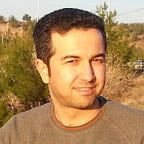The Kurds Are Quietly Annexing Kirkuk
And the city’s oil riches
by VAGER SAADULLAH
When Islamic State swept into Mosul in June 2014, Iraq’s army crumbled and fled. Baghdad’s troops also abandoned surrounding territories, including the oil-rich city of Kirkuk.
But before Islamic State could move in, Kurdish Peshmerga forces swiftly secured Kirkuk. The ethnically diverse city is home to Kurds, Arabs and Turkmen.
The Peshmerga began patrolling and protecting the city from terrorists, and have maintained relative security. But the Kurdish move into the city was controversial.
Leaders in Baghdad accused the Kurdistan Regional Government of overstepping its authority—along a slow march toward annexing the city.
The city has been a major flashpoint in the debate over Iraq’s disputed territories—areas that both the central government and the Kurds believe belong to them.
Iraq tried to resolve the political status of Kirkuk years ago. The effort failed. Article 140 of the 2005 Iraqi constitution required a settlement of the issue of disputed areas no later than Dec. 31, 2007.
It is now 2015, and the issue of remains as contentious as ever. Many Kurdish politicians and opposition groups have accused the KRG of dragging its feet and ignoring the issue.
They want Erbil to be more aggressive at taking over the city outright. But it’s possible Kurdish leaders have simply remained silent because they are slowly annexing the city.
Playing the political game
There is serious resistance in some corners of Kirkuk to Kurdish annexation. Some Arabs and Turkmens fear Kurdish rule could make them second-class citizens. Many are afraid they could lose their homes and businesses.
If the Kurds rush the process too quickly, it could lead to more violence and instability. But the Kurds have taken slow, quiet steps toward absorbing Kirkuk into Kurdistan without starting fights and inciting chaos.
In the 2010 Iraqi parliamentary elections, the Kurdish politicians gained six seats in Kirkuk. Arabs and Turkmens together gained six.
In 2014 elections, the Kurds gained eight seats, while Arab and Turkmen had just four seats.
This has helped solidify Kurdish administrators in the city. It also allows Kurdish leaders to win by default—the population of Kurds in Kirkuk is larger than the others, in spite of the decades of Arabization by successive Baghdad regimes.
When Peshmerga fighters moved in to secure the city in June, KRG Pres. Massoud Barzani declared that “Article 140 had been achieved and will not be discussed anymore.”
But Barzani insisted he didn’t mean that Kurdish authority would impose itself on Kirkuk. “There will be a referendum so the residents will decide,” he said. “And their decision will be respected.”
For the first time since the establishment of Iraqi state, the Kurds controlled Kirkuk and almost all historic Kurdish areas. And Kurdish politicians tipped the scales against Iraqi Arab politicians who claim that Article 140 is void—because it wasn’t implemented by the 2007 deadline.
Oil wars
After the Peshmerga took control of Kirkuk, the KRG’s ministry of natural resources took over some oil fields in the province, claiming that they were protecting the oil fields from sabotage.
But there’s also political calculations involved.
Having control of the oil fields and the Iraq-Turkey pipeline—damaged by a terrorist attack in March 2014—has strengthened the KRG’s stance in negotiations with Baghdad. The attack prevented Baghdad from exporting Kirkuk’s oil.
After a contentious debate, the Iraqi government agreed to allow the export of Kirkuk oil through the KRG pipeline to international markets in December. This agreement will get the oil flowing again, and might help boost Iraq’s flagging economy.
But the big winners of the agreement are the Kurds. In effect, Baghdad is now indirectly allowing Kurdish control over the disputed areas.
By Dec. 14, the Kurdish regional government had the first review of a draft law, which allows representatives from the disputed areas to enter the Kurdish parliament.
Mohammed Ali Yaseen—a Kurdish parliamentary member—said this law is a legal way to fill the vacuum of political representation from the disputed areas.
According to Yaseen, this move contains a significant political message. It broadcasts that these areas are as important to Kurds as the other three provinces of Kurdistan.
Buying off Turkey
Baghdad isn’t the only other party with a stake in Kirkuk’s future. Because of Kirkuk’s sizable Turkmen population, Turkey has shown keen interest in events in the region.
Ankara has been critical of any Kurdish annexation of Kirkuk—and fears that an independent Iraqi Kurdistan could provoke secessionism in eastern Turkey. Many Turkish politicians voiced opposition to the Peshmerga presence in Kirkuk before June.
But as the Kurds consolidated their hold, Turkish critics have become far less vocal. This could be a consequence of the budding relationship between the Erbil and Ankara—spurred by increased trade ties and oil and gas agreements.
Turkey has traditionally had a degree of influence over Turkmen leaders in Kirkuk, and has impeded Kurdish moves. But if Turkey backs off, it would remove a huge obstacle to Kurdish aspirations for the city.
These cautious moves could be vital steps for the Kurds. Possession of Kirkuk will help fuel Kurdish dream of an independent state—taking it much closer to reality.
It’s not just economic power that helps the Kurds. If they are able to legally annex disputed areas, it would give the KRG more regional legitimacy … something hard for the international community to ignore.
However, much of this is possible because all parties share the common enemy in Islamic State. A victory against the jihadists also poses a latent danger to the Kurds.
If Baghdad can defeat the militants, there’s no guarantee it will let Kirkuk—and the disputed areas—go without a fight.
